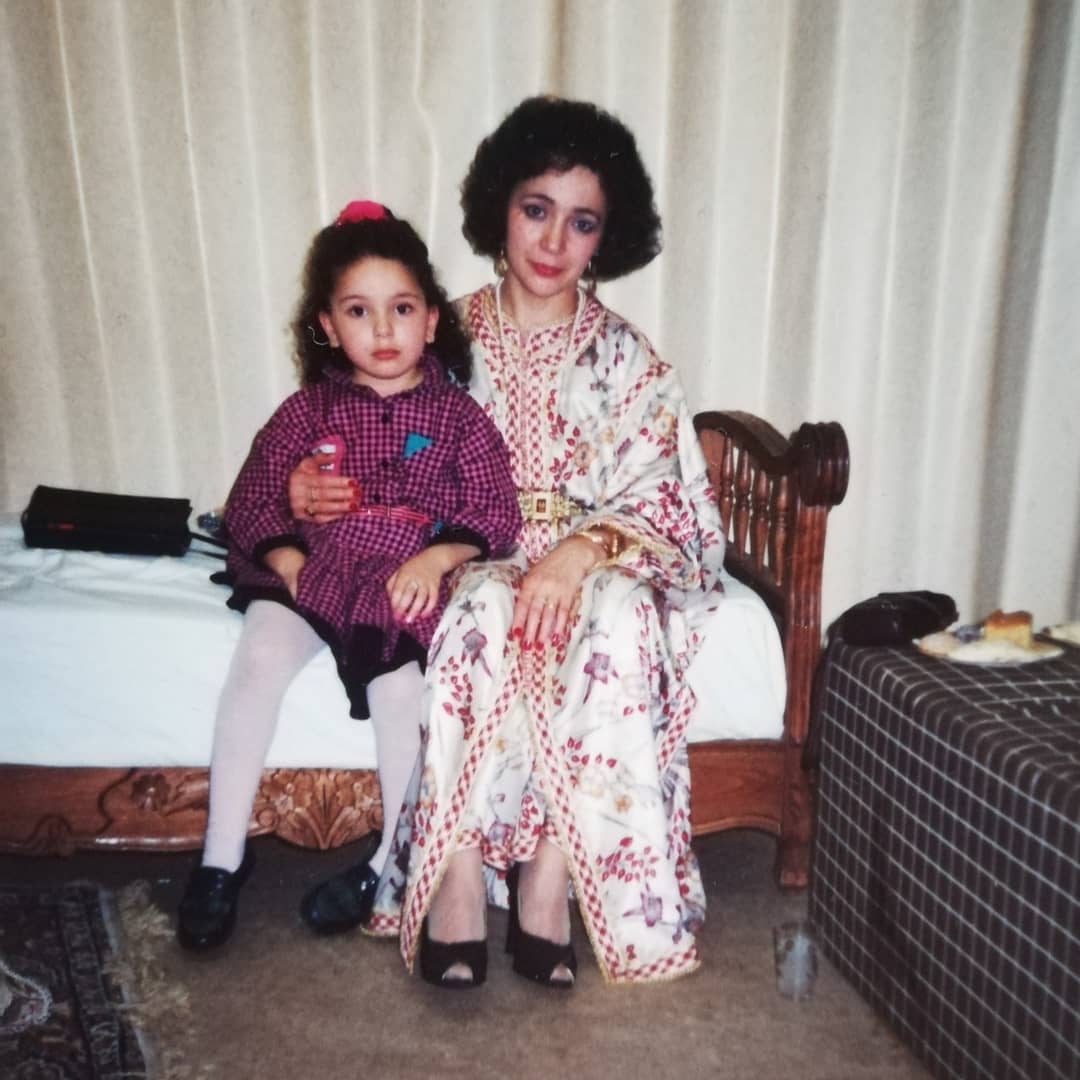Meryem Slimani: The Moroccan artist that honors her mother with art

Happy Mother’s Day. For this day we interviewed Meryem Slimani about their iconic Mother Daughter Art:
Meryem Slimani is a self-taught Moroccan-Dutch photographer known for her vibrant portraits of her 72 years old mother, auntie Najate. Blending streetwear with tradition, her work celebrates motherhood, identity, and visibility. What began as healing for both mother and daughter during challenging times, became powerful art that touched many around the world.
Meryem studied cultural studies and taught herself photography, starting out with a Samsung phone and old textbooks stacked on a ladder as a tripod.
Her work began as a form of therapy. She launched a blog and an Instagram account where she explored the online worlds of body positivity and streetwear. Her mother appeared now and then as a cameo in her photos complementing Meryem in bright colors and bold prints. They used the self-timer on her phone, leaning it against books on her balcony or in her mother’s backyard. Najate quickly became the focus: styled, directed, and photographed by her daughter. “I love the visibility of my mother as an older woman and a visibly Muslim woman,” Meryem says, “she faces very different experiences than we do as younger women of color.” That’s what made her want to keep photographing her.

"My mother is my world, my everything. I’m her only child, and after my parents separated when I was young, it was always just the two of us. I’ve always found it hard to say ‘I love you’ face to face, but I found my own ways to show it. Since primary school, I wrote her poems and little notes, and now I think photographing her is my way of capturing that love both literally and emotionally. Honestly, I can’t imagine life without her, and her wish to live to 100 is part of my daily dua."
Each portrait starts like a puzzle in Meryem’s mind: the first piece could be anything: a sweater, a feeling. She draws inspiration from her own closet, her mother’s, or her husband’s, then roams the market to find the perfect fabric that brings the look to life. She calls her mother’s wardrobe a vintage treasure chest full of 80s and 90s pieces, including traditional Moroccan clothing. Combined with streetwear that defines Dutch city culture, these form the foundation of Meryem’s styling.
There are a few favorite pieces from Patta, Daily Paper and Casablanca. Brands like these hold a special meaning for Meryem. “They were created by young people of color who carved their own path. It’s not just about beauty: it’s about creating space. Staying true to where you come from. Don’t hide. Show yourself. And if people don’t think it’s cool, then it’s not for them.”
“When we were both going through a tough time, I was in treatment for depression and she was recovering from breast cancer, I started a blog as a way to keep myself busy. Funny enough, back then she was the one taking pictures of me. My mom had always been the one behind the camera on holidays, day trips, and family gatherings. Sometimes I shared photos of us just for fun, because back then social media was more about sharing your life. I noticed people really liked those pictures, especially because we both have our own unique sense of style.”
“Before that, I also took photos of my mother after her chemotherapy, especially when her hair started falling out, to show her how beautiful she still was. It made her feel so good, and something quietly started growing in me: that this could be a meaningful way to share my creativity and our story.
At the time, you hardly ever saw older people on social media. Especially not in the fashion world. The same was true for women who wear hijab. I sensed that what we were doing was something special and unique. It started out innocently and improvised, but unexpectedly grew into global media attention, museum exhibitions, and international ad campaigns.”
“She loves what we are doing. When my mother got sick, she could no longer work as a primary school teacher. Later, when my grandmother in Morocco became weaker in her final years and needed care, my mom no longer had the energy for her community work, for which she was even knighted. Her world became smaller, and she spent a lot of time alone when she wasn’t with us in Rotterdam.
Now, with all the time we spend together, all the experiences we share, and the new things she gets to do, she always says it gave her a new lease on life. In the beginning, she felt really awkward posing. Even in front of my camera on our old balcony. And now? She’s shining on big sets with full crews. To go through such an evolution at her age is truly special and inspiring.”
